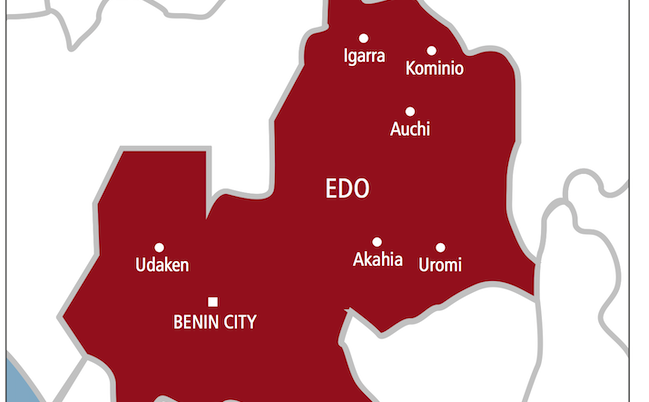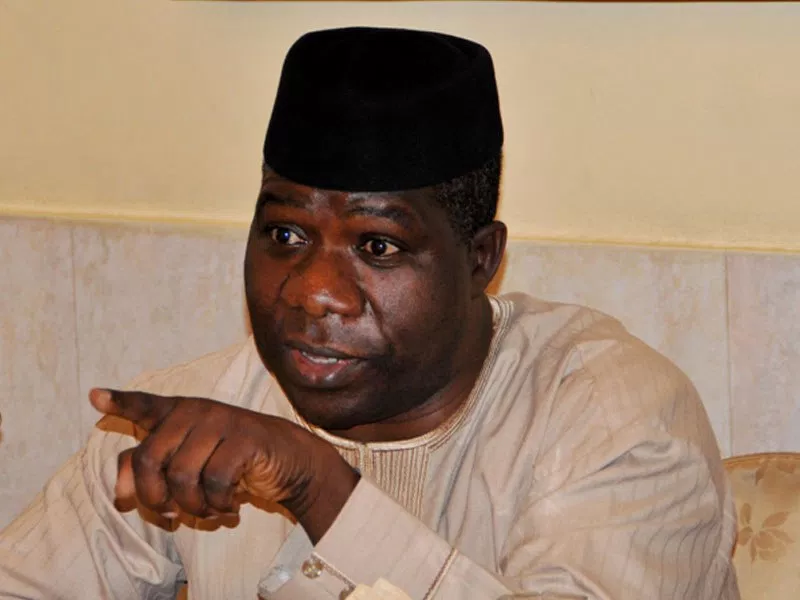By Felix Oboagwina
The result from the recent governorship election in Edo State, pundits submit, may complicate the chances of Governor Godwin Obaseki’s deputy, Comrade Philip Shaibu’s expected ascendancy as the next governor.
Of the three senatorial districts in the state, that of Shaibu and the former All Progressives Party (APC) National Chairman, Comrade Adams Oshiomhole, Edo North Senatorial District, gave majority votes to the defeated party.
Facts behind the Figures indicate that:
• Voters successfully caged the dreaded APC lions and tigers
• Vote-buying played no significant role in the overall outcome
• Esan people in Edo Central Zone brightened their case for a shot at the governorship next time against the aspiration of the Deputy Governor
• Obaseki remains the superior candidate no matter his platform
• Voter apathy remains a headache VOTER APATHY The turnout validated a Daily Times election eve report that the polls would react negatively to citizens’ fears about insecurity and the raging epidemic as per the paper’s lead headline titled, “Fears Over Violence, Covid-19, Vote-Buying Earmark Edo Election Tomorrow.”
As predicted, the election suffered greater voter apathy as fewer voters turned up to elect Obaseki into office this time around when the voting population declined 6 percent below that of 2016.
From INEC records, voter turnout hit 622,039 (32.74 percent) in 2016 but slumped by 7.52 percent to 557,443 (25.22 percent) in the expected total of 1.7 million electors.
It did not help matters too that INEC resorted to using the last compiled register with 2,210,334 voters for the Edo poll, but out of that number, social distancing and lockdown protocols over COVID-19 hampered the commission from delivering over 483,000 permanent voter’s cards (PVCs) to owners.
VOTE-BUYING MADE LITTLE IMPACT
Eyewitnesses said that vote-buying may have contributed little to the battle for voters’ hearts as both APC and PDP cancelled out each other inducement-wise by matching naira for naira.
In the words of Mr. Edward O., a retired military officer in Ewu town, “When PDP heard that APC was luring voters with N5,000, they quickly upped their game too and matched the amount.
As for me, I got N15,000 from different canvassers from both parties.
My wife got N5,000, making N20,000 that came into my family.
No outbreak of violence at all, we are brothers, and party chieftains of both parties made the entire place to bubble with food and drinks.”
However, all the parties’ inducements proved ineffective in mobilising over a million voters to leave their homes for polling units.
“The apathy in Nigeria’s elections is getting too much. Come to think of it, how can barely 530,000 people decide the future of a state (with) over 5 million people –10 percent of the state determines the future of 100 percent of the state’s residents?”
One Whizdomxxn wrote in a social blog.
SHAIBU’S LOSS, EDO CENTRAL’S GAIN
Edo Central, dominated by the Esan stock, has agitated for a chance at the governorship on the grounds that the two other zones would have occupied the slot for eight years apiece, and it appears to have brightened its chances by delivering majority votes throughout all its five local governments.
Reflecting his people’s dominant sentiment, a notable politician from Esanland, Comrade Ambrose Ehiagwina Odiase, said: “A win for APC and Ize-Iyamu in this election, would not only take Edo State back to Egypt, but it will also catapult Esan governorship to 2027.”
Although he secured victory in his booth at Etsako West Local Government Polling Unit 5 Ward 11 (PDP 401, APC 148), Shaibu failed to deliver the council he shares with former APC National Chairman, Comrade Adams Oshiomhole, with final results standing at APC 26,140 votes (59.3 percent) and PDP 17,959 (40.7 percent).
Indeed, throughout Shaibu’s Edo North Senatorial District, PDP came behind with 82,453 to APC’s 104,961 votes and could only boast of a majority in one of the six local governments there.
Results from the district are: Owan East –APC 19,295 (56.7 percent)/PDP 14,762 (56.7 percent), Etsako West –APC 26,140 (59.3 percent)/ PDP 17,959 (40.7 percent), Etsako Central –APC 8,359 (52.8 percent)/PDP 7,478 (47.2 percent), Etsako East –APC 17,011 (61.5 percent)/ PDP 10,668 (38.6 percent), Owan West –APC 11,193 (49.4 percent)/ PDP 11,485 (50.6 percent, Akoko Edo –APC 22,963 (53 percent)/PDP 20,101 (46 percent).
Conversely, the Esan people, the second largest ethnic stock in the state, lay claim to fully delivering their five local councils and have guaranteed the Esan Central zone to PDP as they have traditionally done in the senatorial contests for 21 years now since 1999.
In Esan Central Local Government Area, victory went to PDP by 10,794 (61.6 percent) votes to APC’s 6,719 (38.4 percent), Esan NorthEast –PDP 13,579 (67.4 percent)/APC 6,556 (32.6 percent), Esan South-East –PDP 10,563 (53.3 percent)/ APC 9,237 (46.7 percent), Esan West –PDP 17,434 (70.8 percent)/APC 7,189 (29.2 percent) and Igueben –PDP 7,870 (60.2 percent)/APC 5,199 (39.8 percent).
The last time an Esan was Governor was during the short-lived 11-month tenure of Professor Oserheimen Osunbor, an Igueben man from Esan West Local Government, who was judicially upstaged by Oshiomhole in a tribunal ruling sustained by the Court of Appeal.
Going by this voting pattern, analysts suggested that Shaibu, who has faithfully stood with his principal since their first joint ticket in 2016 and refused to follow the Oshiomhole bandwagon that saw several in the incumbent Governor’s cabinet jumping ship and resigning, may have to first cool his heels in the Senate and return to contest the governorship in 2032, if the rotation arrangement among the three zones continues to hold.
EDO JOINS PDP FAMILY AGAIN
Despite 14 parties’ candidates participating in the election, it finally boiled down to a straight contest between Governor Godwin Obaseki of PDP and Pastor Osagie Ize-Iyamu of APC throughout Edo’s 18 local governments, 192 Wards, and 2,627 polling units.
The Edo election restored Edo into the PDP family in the South-South, with the party now in total control of the entire South-South, along with Rivers, Cross River, Bayelsa, Delta and Akwa Ibom as had been the case before Oshiomhole encroached through APC in 2016.
OBASEKI RETAINS WINNING STREAK
This election showed the incumbent Governor maintaining his winning streak from 2016 when he contested under APC and chalked up 319,483 votes (52.09 percent) to defeat then PDP’s Osagie Ize-Iyamu who polled 253,173 (41.28 percent).
Although both candidates remained static as per number of councils won in the two election cycles (13 for Obaseki and five for Ize-Iyamu), the Governor improved his voting strength this time around that he superseded with 84,336 votes from last time when he beat the same man with 66,310 votes.
TAMING OF LIONS AND TIGERS
Voting figures also indicated that the renowned APC “lions and tigers” were defanged and neutralised in their immediate constituencies.
READ ALSO: Editorial: Edo election: Triumph for democracy
Tony Kabaka, APC and Oshiomhole’s strongman, lost his Uhunmwonde Local Government Area Polling Unit 02 Ward 003, where PDP polled 149 votes, APC 26, ADP 2, NRM 1 and zero for the 10 remaining parties.
PDP similarly captured Polling Unit 02 Ward 002, Oredo Local Government Area, of the party’s former National Chairman and one-time Edo State Governor, Chief John Odigie-Oyegun, by securing 109 votes to APC’s 40 votes.
Overall, the voting pattern showed the dominance of two parties as currently obtains at the Federal level.







Leave a Comment
You must be logged in to post a comment.